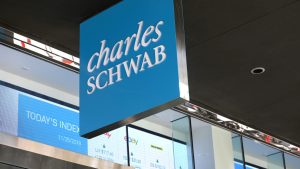In some years gone by, September and October have proved to be difficult months for the stock market. What’s more, with fears of a bubble in artificial intelligence (AI) stocks due to their rapid rise, talk of a potential market crash in the upcoming months continues.
That may seem daunting. But in all honesty, I wouldn’t be too fussed. Instead, I’d view it as an opportunity.
Volatility in the stock market is inevitable. Therefore, as a long-term investor, I’d use the chance to add beaten-down stocks to my portfolio for a slashed price. After all, the market has always recovered from previous crashes.
Of course, this is all speculation. But if the market were to take a tumble this year, these would be the first two shares I’d buy.
British American Tobacco
First up would be British American Tobacco (LSE: BATS). After a rough couple of years, the stock has gained strong momentum in 2024. Year to date, it has climbed 23.3%.
But even despite that rise, I think its shares look like good value. They currently trade on around 13 times earnings. Looking forward, they trade on just 8 times forward earnings.
A decline in its share price would also push up its dividend yield, which already stands at an impressive 8.2%. That passive income would tide me over while I patiently waited for the stock to recover.
What’s more, management has reiterated its intention to keep rewarding shareholders. That’s why it recently announced plans for a £700m share buyback scheme in 2024 and a £900m scheme in 2025.
Of course, there’s one obvious threat to the business. Smoking is a habit that’s becoming less popular and more scrutinised. There’s been a rise in legislation being imposed on the sector over the past few years, so that’s something to keep a check on.
But the solid ground the firm has made with its New Categories division, which sells non-combustible products, makes me bullish on its long-term prospects.
Unilever
I’d also be keen to pick up Unilever (LSE: ULVR). Like British American Tobacco, it has produced strong returns this year. 2024 has seen its share price climb 28.7%. It’s up 20.1% over the last 12 months.
I like Unilever for its defensive nature. In a market downturn, I’d want to own stocks that could provide my portfolio with stability. Unilever offers that.
That’s because the products it sells are essential. They’re used by more than 3.4bn people every day. That means there should be demand regardless of external factors such as the state of the economy.
We saw the benefits of this in its latest update. Even with the cost-of-living crisis, its net profit rose 3.5%.
Of course, it’s worth highlighting that the goods it sells are brands rather than own brands. Therefore, they come at a slightly premium price. That leaves the threat of consumers switching to cheaper alternatives to save money.
But over the long term, I think Unilever could be a smart buy. That’s especially true considering the streamlining mission the business has undertaken in recent years.
Like its Footsie counterpart, the stock also provides passive income, albeit it yields slightly lower at 3%. Nevertheless, the income on offer would still be a welcome addition as I rode out any potential market volatility.
This post was originally published on Motley Fool




